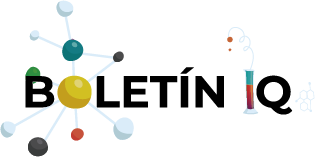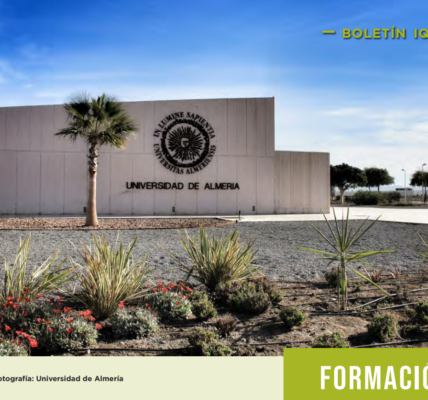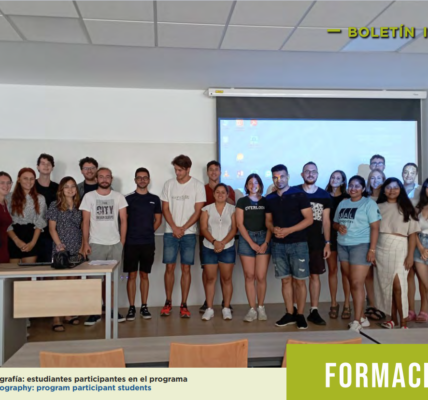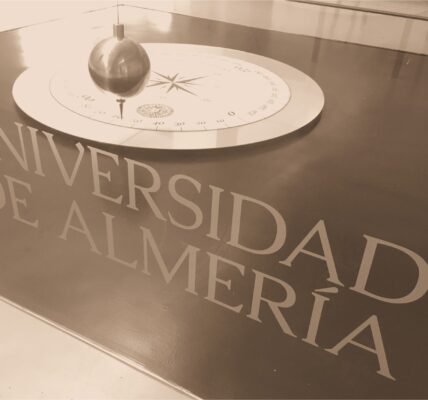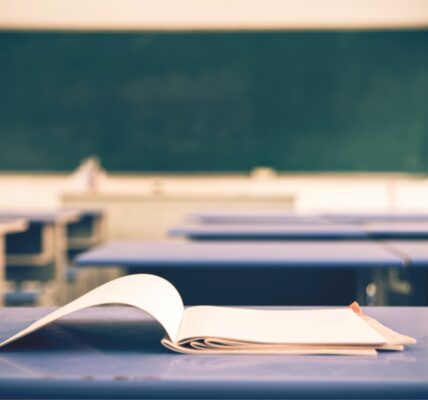Experiencias de estudiantes internacionales Experience of international students
NUEVO PROGRAMA ERASMUS+ DE CORTA DURACIÓN EN EL DEPARTAMENTO DE INGENIERÍA QUÍMICA
NEW SHORT DURATION ERASMUS+ PROGRAMMES AT THE CHEMICAL ENGINEERING DEPARTMENT
Esta es la experiencia de estudiantes
internacionales que participaron en el
Proyecto BIP organizado por la UAL
denominado: “SUSTAINABLE BIOTECHNOLOGY ENTREPRENEURSHIP:
MICROALGAE & HUMAN FOOD”, contado
por los estudiantes.
¿Qué es un BIP?
BIP (Blended Intensive Programme), es un
programa intensivo semipresencial que
involucra a estudiantes de diferentes países y
con diferentes perfiles que colaboran para
lograr un objetivo principal. Esta edición tuvo
lugar en la Universidad de Almería, en España,
donde los estudiantes participantes en las
secciones online y presencial trabajaron juntos
realizando un proyecto para alcanzar el
objetivo 2 de los Objetivos de Desarrollo
Sostenible (ODS): «Hambre Cero».
¿Cuál fue el tema principal del proyecto?
Los estudiantes trabajaron en grupos para
concretar proyectos centrados en el uso de
microalgas para la alimentación humana. ¿Por
qué se eligieron las microalgas? Las microalgas
pueden ser una alternativa sostenible a los
productos animales gracias a sus propiedades,
de hecho son ricas en proteínas y lípidos que
son buenos para la salud humana.
¿Por qué participamos?
Fue la oportunidad perfecta para mejorar
nuestras habilidades en diferentes áreas como
el idioma, el mundo profesional, la interculturalidad y las relaciones humanas. Así,
podríamos aprender a abordar un mismo tema
de diferentes maneras según nuestros diferentes puntos de vista y explotando nuestro bagaje cultural específico.
Combinando nuestros conocimientos y nuestros descubrimientos pudimos crear un proyecto completo que combina diferentes disciplinas, desde la ciencia hasta la economía, y también evaluando los impactos ambientales y sociales.
¿Cuáles fueron los propósitos del proyecto?
El objetivo era crear una serie de productos de
nutrición con microalgas como ingrediente
principal. Se utilizaron varias especies, como la
espirulina (Arthrospira platensis) y la chlorella
(Chlorella). Ambas, con un alto contenido
proteico de origen no animal y ricos en
vitaminas y sales minerales, se encontraron
como alternativas sostenibles ya que su cultivo
requiere un menor uso de los recursos
naturales (agua, suelo y energía),
contribuyendo a la realización de una
verdadera economía circular. Podemos decir
que se trata de una economía circular, ya que
es posible trabajar no solo con agua «limpia»
sino también con aguas residuales / pluviales.
Además, gracias al proceso de fotosíntesis, las
microalgas emiten O2 y retienen CO2, por lo
que no tienen un impacto significativo en
comparación con otras producciones. El
cultivo, por su parte se puede implementar de
dos maneras: en estanques de canales
abiertos, que implican bajos costos de cultivo y
cosecha de biomasa, o alternativamente en
sistemas cerrados como las «columnas
verticales de burbujas»; ambas tecnologías son
adecuadas para el uso de energía renovable.
¿Cómo trabajamos?
Como dijimos antes, el enfoque general de los
proyectos desarrollados durante las
actividades se centró principalmente en la
creación de modelos de producción,
vinculados a piensos y alimentos sostenibles,
con miras a combatir el hambre en áreas de
riesgo. Se han identificado cepas de
microalgas más adecuadas para las regiones y
fines de producción específicos, fuentes
particulares de suministro de energía y
materias primas y, finalmente, un modelo
característico de integración en las
comunidades locales, tanto desde el punto de
vista laboral como de comercialización. Los
pilares sobre los que se centran las estrategias
de impacto de los proyectos son la
optimización de los insumos (cadena
financiera y de suministro), la producción
(recursos energéticos, consumo de suelo,
modelos de gestión empresarial), el
procesamiento de alimentos (nutricional y
ciclo de vida), la logística (trazabilidad y bases
de datos) y la distribución final (recuperación
de residuos, comercio justo). Cada proyecto
fue apoyado por la Evaluación de Impacto
Social Corporativo, un análisis DAFO y la
Evaluación de Sostenibilidad, gestionada por
el Comité Internacional de Evaluación de
MBFP-ODS. La universidad también ha
proporcionado el apoyo de personal interno y
externo cualificado listo para brindar apoyo y
sugerir buenas prácticas para la preparación
adecuada del proyecto.
¿Quién participó en el proyecto?
Los participantes del proyecto fueron
estudiantes de diferentes cursos de grado y
universidades. Los estudiantes italianos
provenían de la Universidad de Parma, la
Universidad de Ferrara, la Universidad
Politécnica de Le Marche, la Universidad
Milano-Bicocca y la Universidad de Cagliari, los
polacos de la Akademia Nauk Stosowanych w
Lomzy, también había estudiantes del
Georgian College de Canada, Universität
Hohenheiem (Germany), University of
Economics-Varna (Bulgaria) y la Université
Paris-Est Créteil Val de Marne (Francia) y los
españoles eran estudiantes de la Universidad
de Almería. Los participantes se dividieron en
cinco trabajos de equipo heterogéneos, tanto
en términos de conocimientos y habilidades
adquiridas en los diferentes cursos de estudio,
como también en términos de pertenencia a
diferentes niveles académicos. Una de las
prerrogativas más importantes en las que se
centraron los participantes fue el logro del Objetivo No. 2 «HAMBRE CERO» de la ODS 2030. Teniendo en cuenta las dimensiones
social, ambiental y económica, los
participantes pudieron desarrollar proyectos
eficaces y ejecutables en áreas geográficas
específicas.
¿Cuáles fueron las actividades?
Las actividades del proyecto se pueden resumir en dos partes:
La primera comenzó en marzo e incluyó reuniones en línea en las que se explicó y discutió la estructura de los proyectos. Diferentes equipos se encargaron de desarrollar un proyecto utilizando microalgas.
La segunda parte comenzó a finales de julio directamente en Almería, entre el 20 y el 29 del mes, donde participamos en actividades presenciales.
Un segundo grupo de participantes se involucró y se encargó de ayudar después a evaluar las debilidades y fortalezas de los proyectos trazados. Durante el tiempo que pasamos en Almería tuvimos una rutina en la que la mañana se utilizaba para clases sobre microalgas y reuniones destinadas a implementar los proyectos creados durante el primer período.
Se planificaron visitas guiadas a los laboratorios universitarios de cultivo de microalgas y biorreactores y nos fueron muy útiles para aprender a producir las microalgas y aplicarlas al proyecto.
Además, tuvimos la oportunidad de descubrir la ciudad y su cultura mediante otras actividades recreativas: primero, la universidad organizó una excursión en kayak en la reserva natural Cabo de Gata, lo que nos ayudó en la formación de equipos y el fortalecimiento de los vínculos. También participamos en una sesión de cocina donde un chef con una Estrella Michelin, reinventó algunos platos tradicionales (ceviche: pescado y fruta agria como fresas y moras marinadas en lima) agregando microalgas; esta experiencia nos ayudó a comprender mejor la utilidad de las microalgas en la vida ordinaria y lo fácil que podría ser incluirlas en nuestro día a día. El mismo día, probamos miel de un panal natural.
Algunos estudiantes de secundaria se
involucraron, y nos mostraron cómo producir
microalgas de forma económica y artesanal,
también prepararon unas sabrosas galletas
con microalgas y nos sorprendió su sabor:
¡nada que pudiéramos esperar!
¿Cómo describiríamos a Almería?
Almería es una ciudad de tamaño medio con
un estilo de vida muy relajado pero no
aburrido. Los transportes públicos son
cómodos y eficientes, y no tuvimos ningún
problema para llegar a ninguna parte de la
ciudad. También es agradable de visitar
simplemente caminando. La ciudad es segura
para visitar en este aspecto y no tuvimos
ningún evento desafortunado.
La verdadera diversión viene ahora porque
tiene muchos lugares para visitar y cosas que
hacer. Aquí hay algo que hicimos durante
nuestra estancia.
La playa estaba muy cerca de nuestro
alojamiento, era encantadora y espaciosa, y las
playas privadas eran casi inexistentes, así que
podíamos colocar en cualquier lugar. También
estaban muy limpios, y lo mismo se puede
decir del mar.
La ciudad está llena de museos y lugares
culturales, como el castillo de la Alcazaba, que
ofrece una vista impresionante de la ciudad y
es hermoso en sí mismo.
La vida nocturna de Almería es divertida y
ofrece muchas cosas que hacer, generalmente
íbamos a bailar a la discoteca mientras
tomábamos algo. También pasamos muchas
noches nadando, ya que el clima siempre fue
muy agradable.
También fuimos a un espectáculo de flamenco
y fue increíble, la cultura de las tapas es
perfecta para conseguir algo para beber y
comer barato mientras paseamos por las calles
y discotecas del centro de la ciudad.
¿Por qué deberías participar en un proyecto
como este?
Este tipo de movilidad es una gran
oportunidad para que todos participen en
muchos aspectos. Ayudará a tu crecimiento
profesional porque es algo que
probablemente no has podido hacer antes y es
desafiante al mismo tiempo porque se necesita
interacción y cooperación con las demás
personas. Al final, también desarrollarás tus
«soft skills” como el idioma, y es una buena
manera de abordar estos aspectos ya que
puedes tomarte tu tiempo para interactuar.
No solo la parte de estudio fue interesante, sino
que también conocer gente nueva fue una de
las cosas más satisfactorias del proyecto y
también comenzar a acercarse durante el
período BIP, gracias a todas las actividades
que planeamos hacer después de la
universidad y las que la ciudad podría ofrecer.
En conclusión, tanto la parte de estudio como
la de ocio fueron muy bien gestionadas por la
universidad para que tuviéramos tiempo de
hacer lo que quisiéramos y experimentar todo
lo que pudiéramos; el único «precio» fue parte
de nuestro tiempo allí para hacer nuestros
estudios y es por eso que recomendamos
encarecidamente este tipo de proyectos.
This is the experience of international students
involved in the UAL´S BIP:
“ SUSTAINABLE BIOTECHNOLOGY
ENTREPRENEURSHIP: MICROALGAE &
HUMAN FOOD”, told by the students.
What’s a BIP?
BIP means Blended Intensive Programme and
it involves students from different countries
and with different backgrounds to achieve a
main goal. This edition took place at the
Universidad de Almeria, in Spain, where the
students participating to the online and inpresence sections worked together
developing a project to achieve the goal 2 of
Sustainable Development Goals (SDG): “Zero
Hunger”.
What was the main topic of the project?
Students worked in groups to realize projects
focusing on the use of microalgae for human
food. But why did they choose microalgae?
Microalgae can be a sustainable alternative to
animal products thanks to their properties, in
fact they are rich in proteins and lipids that are
good for human health.
Why did we participate?
It was the perfect opportunity to improve our
skills in different areas such as language,
professional world, cultural aspects and human
relationship. Thus, we could learn how to
approach the same topic in different ways
according to our different points of view and
exploiting our specific cultural baggage.
Combining our knowledge and our discoveries
we were able to create a complete project
combining different disciplines, from science
to economy, and also evaluating the
environmental and social impacts.
What were the purposes of the project?
The aim was to create a series of nutrition
products with microalgae as the main
ingredient. Several species were used, such as
spirulina (Arthrospira platensis) and chlorella
(Chlorella). Both, with a high protein content of
vegetable origin and rich in vitamins and
mineral salts, were found to be sustainable
alternatives as their cultivation requires less
use of natural resources (water, soil and
energy), contributing to a true circular
economy. We can say this is a circular
economy, since it’s possible to work not only
with ‘clean ‘waterbutalsowith wastewater/rainwater. In addition, thanks to
the photosynthesis process, microalgae emit
O2 and retain CO2, thus having no significant
impact compared to other productions.
Because of this, cultivation can be
implemented in two ways: in open raceway
ponds, which imply lower costs of biomass
cultivation and harvesting, or alternatively in
closed systems such as ‘bubble vertical
columns’; both technologies are suitable for
renewable energy use.
How did we work?
As we said before, the general focus of the
projects developed during the activities mainly
focused on the creation of production models,
linking to sustainable feed and food, with a
view to combating hunger in risk areas. Strains
of microalgae most suitable for the regions and
specific production purposes, particular
sources of energy supply and raw materials
and finally a characteristic model of integration
in local communities have been identified both
from a working and marketing point of view.
The pillars on which the impact strategies of
the projects focus are the optimization of
inputs (financial and supply chain), production
(energy resources, soil consumption, business
management models), food processing
(nutritional and life cycle), logistics
(traceability and databases) and final
distribution (waste recovery, fair trade). Each
project was supported by the Corporate Social
Impact Assessment, a SWOT analysis and the
Sustainability Assessment, managed by the
International Evaluation Committee of MBFPSDGs. The university has also provided the
support of qualified internal and external staff
ready to give support and to suggest good
practices for proper project preparation.
Who took part in the project?
The project participants were students from
different degree courses and universities. The
Italian students came from the University of
Parma, the University of Ferrara, the
Polytechnic University of Le Marche, the
Bicocca University of Milan, and the University
of Cagliari, the Polish ones from the Akademia
Nauk Stosowanych w Lomzy, and there were
also students from the Georgian college in
Canada, Universität Hohenheiem (Germany),
University of Economics-Varna (Bulgaria) and
Université Paris-Est Créteil Val de Marne
(France), and the Spanish students were from
the University of Almeria. The participants
were divided into five heterogeneous team
works, both in terms of knowledge and skills
acquired in the different courses of study, but
also in terms of belonging to different academic levels. One of the most important prerogatives the participants focused on was the achievement of Goal No. 2 «ZERO HUNGER» of the SDG’s 2030. Taking into consideration the social, environmental and economic dimensions, the participants were able to develop effective and implementable projects in specific geographical areas.
What were the activities?
The project activities can be summarized in
two parts:
The first started in March and included online
meetings in which the structure of the projects
was explained and discussed. Different teams
were tasked to develop a project using
microalgae.
The second part started at the end of July
directly in Almerìa, between the 20th to 29th
of the month, where we were engaged in onsite activities.
A second group of participants was involved
and tasked to help after to evaluate the
weaknesses and strengths of the plotted
projects.
During the time we spent in Almeria we had a
routine in which the morning was used for
classes about microalgae and meetings aimed
at implementing the projects created during
the first period.
Guided visits to the university microalgae
culture laboratories and bioreactors were
planned and were very useful for us to learn
how to produce the microalgae and apply
them to the project.
Also, we had the opportunity to discover the
city and its culture by other activities that
didn’t concern our studies: first, the university
organized a kayak excursion at the natural
reserve “Cabo de Gata”, which helped us in
team building and strengthening bonds.
We also participated to a cooking show where
a chef with a Michelin Star, reinvented some
traditional dishes (ceviche: fish and sour fruit
such as strawberries and blackberries
marinated in lime) adding microalgae; this
experience helped us to understand more the utility of microalgae in ordinary life and how
easy it could be to include it in our daily basis.
On the same day, we tasted natural made
honeycomb.
Some high school students were involved, and
they showed us how to produce microalgae
with cheap instruments, they also prepared
some tasty cookies with microalgae and we
were amazed by their flavor: nothing we could
expect!
How would we describe Almerìa?
Almeria is a middle-sized city with a very laidback but not boring lifestyle. Public transports
are comfortable and efficient, and we didn’t
have any problems reaching any part of the
city. It is also enjoyable to visit just by walking.
The city is safe to visit in this aspect and we
didn’t have any unfortunate events.
The real fun comes now because it has many
places to visit and things to do. Here is
something we did during our stay.
The beach was very close to ou r
accommodation, it was lovely and spacious,
and the private beaches were almost nonexistent so we could place anywhere. They
were also really clean, and the same can be said
for the sea.
The city is full of museums and cultural spots,
such as the “Alcazaba” castle, which offers a
stunning view of the city and is beautiful itself.
Almeria’s nightlife is fun and offers lots of
things to do, we usually went dancing in the
disco while having something to drink. We also
spent many nights swimming, since the
weather was always really nice.
We also went to a flamenco show and it was
amazing, the tapas culture is perfect to get
something to drink and eat cheaply while wandering in the streets and clubs of the city
center.
Why should you take part in a project like
this?
This type of mobility it’s a great opportunity for
everyone to participate in many aspects. It will
help your professional growth because it is
something that you probably didn’t get to do
before and challenging at the same time
because interaction and cooperation with
people are needed. In the end, you will also
develop your soft skill such as the language,
and it’s a good way to approach these aspects
since you can take your time.
It wasn’t only the studying part that was
interesting but also meeting new people was
one of the most satisfying things about the
project and also starting to get closer during
the BIP period, thanks to all the activities we
planned to do after university and the city
could offer.
In conclusion, both the studying part and the
leisure one were very well managed by the
university so that we had time to do what we
wanted and experience all we could; the only
“price” was some of our time there to do our
studies and that’s why we highly recommend
this kind of projects
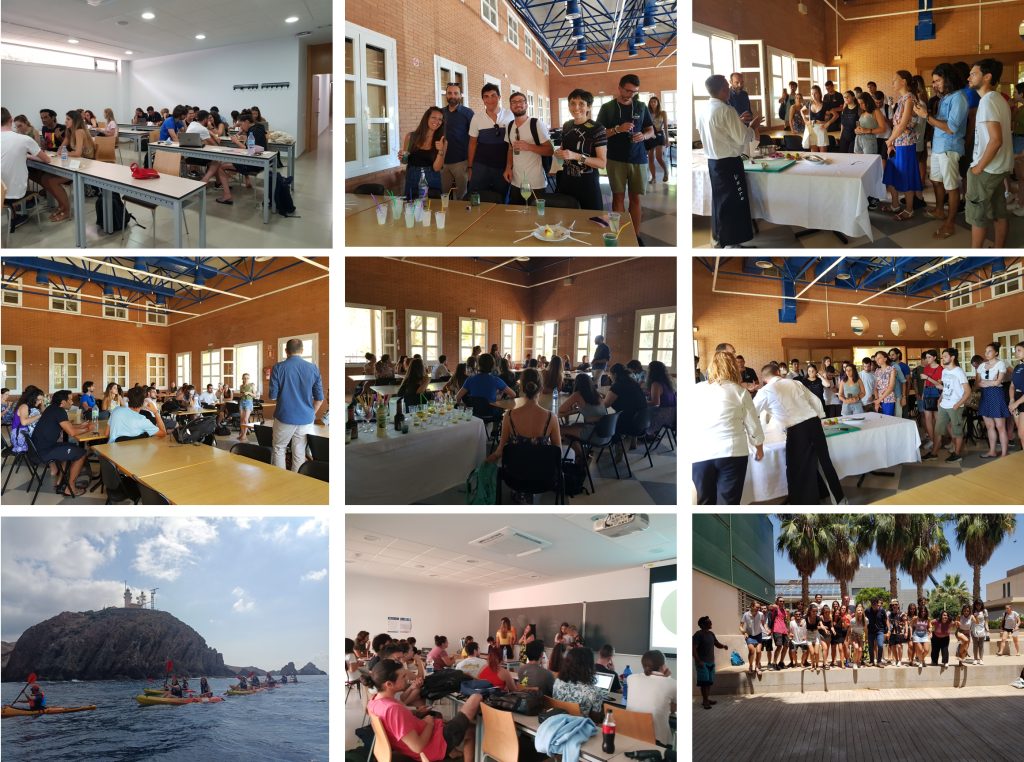
Some pictures of the event
Los autores:
The authors:
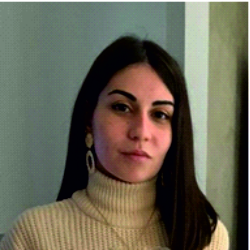
Giulia Negro:
26 años, licenciada en Ciencias Gastronómicas y próximamente terminará el Máster en Calidad Alimentaria. Le encanta viajar, conocer gente nueva y descubrir nuevas culturas. Siempre está interesada en mejorar sus habilidades de trabajo multicultural y cooperativo como lo demuestra en sus múltiples experiencias de prácticas (Ruanda, Almería, etc.).
26 years old. She has a bachelor’s degree in Gastronomic Sciences and will soon finish the master’s degree in Food Quality. She loves to travel, to know new people and to discover new cultures. She is always interested in improving her multicultural and cooperative working skills as she demonstrated by her multiple internships experiences (Rwanda, Almeria, etc)
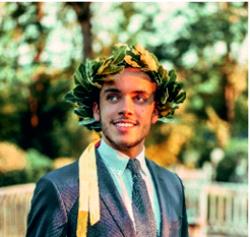
Alessandro Ceci:
Estudiante de 24 años de la Universidad de Parma. Terminó la licenciatura en Ciencias Económicas y Alimentarias. Es un apasionado del marketing y actualmente está finalizando sus estudios de Trade Marketing y Consumer Marketing. Ha estado en EEUU y España varias veces por motivos académicos, mejorando su inglés y español.
24-year-old student from the University of Parma. He finished his bachelor’s degree in Food and Economic Science. He is passionate about marketing and nowadays is completing his Trade and Consumer Marketing studies. He has been to EEUU and Spain several times for Academic reasons, improving his English and Spanish.
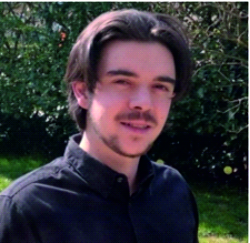
Daniele Catanese:
25 años, estudiante italiano con licenciatura en Gestión de empresas, actualmente en su segundo año del Master de Calidad alimentaria en la Universidad de Parma. Le gusta viajar para expandir sus horizontes con nuevas experiencias y conocer gente. Entre estancia y estancia, hizo viajes a Canadá en Inglaterra para mejorar su inglés.
25-year-old Italian student with a bachelor’s degree in Business and management, now attending his second year of the Master’s degree in Food Quality at Parma University. He loves to travel and expand his horizon with new experiences and meeting people. Among the stays, there were trips to Canada and England made to improve his English knowledge
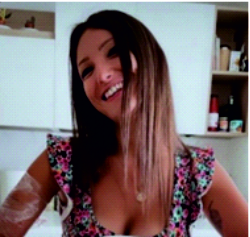
Samira Abukhris:
26 años, estudiante de segundo año del Master de Calidad alimentaria y gastronomía en Parma. Después de graduarse en económicas, algunos de sus logros universitarios están en línea con Objetivos de Desarrollo Sostenible. Disfruta trabajando con gente de diferentes orígenes y culturas con el fin de mejorar aún más su trabajo, habilidades personales y conocimientos.
26 years old, a second-year Master student in quality food systems management and gastronomy in Parma. After her three-year degree in economics, some of her university research goals, are in in line with the SDG-s. She enjoys working with people from different backgrounds and cultures in order to further enhance her work and personal skills and knowledge.
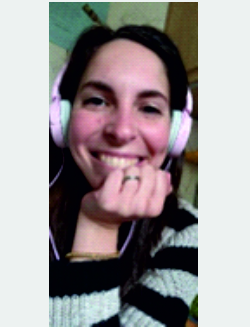
Elisa Benà:
Estudiante de primer año del Doctorado en Sostenibilidad Ambiental y Bienestar en la Universidad de Ferrara. Su amor por la ciencia y la naturaleza la llevaron a estudiar en primer lugar Biología y posteriormente Biotecnología para el medio ambiente. Como soñadora, siempre ha buscado salvar el mundo y actualmente está trabajando con microalgas, utilizándolas en fitoremediación y revalorización de la agricultura, tratando de hacer el cambio a su manera.
First year PhD student on Environmental Sustainability and Wellbeing at the University of Ferrara. Her love for science and nature led her to study first Biology and then Biotechnology for the Environment. As a dreamer, she had always wanted to save the world and now she is working with microalgae using them for phytoremediation and further valorisation in agriculture, trying to make the change in her own way.
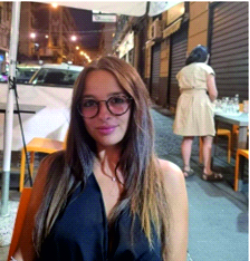
Ada Martelli:
Licenciada en idiomas de negocios (Inglés y Ruso), pero su pasión por el marketing la llevó a matricularse en la facultad de Comercio y Marketing de Consumo en la Universidad de Parma. Su sueño es encontrar un trabajo donde pueda explotar ambas pasiones. Le gusta viajar, aprender sobre nuevas culturas y nueva gente. Por ello siempre busca nuevas experiencias. Hizo un Erasmus en Petrozavodsk (Rusia) y un corto intercambio con la UAL donde descubrió el fascinante mundo de los nuevos alimentos (microalgas).
Bachelor’s degree in business languages (English and Russian), but her passion for marketing led her to enroll in the faculty of Trade and Consumer Marketing at the University of Parma. Her dream is to find a job where she can synergistically exploit her passion for marketing and her passion for languages. Ada loves traveling, learning about new cultures, and most importantly, new people. For that reason, she is always looking for new experiences She did an Erasmus in Russia, in the city of Petrozavodsk, and a short exchange program at our University of Almeria where she discovered the fascinating world of novel foods (Microalgae).
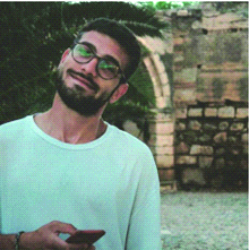
Biagio Gerardo Boffa:
26 años, licenciado en Ciencias Gastronómicas y próximamente terminará el Máster en Calidad Alimentaria. Le encanta viajar, conocer gente nueva y descubrir nuevas culturas. Siempre está interesada en mejorar sus habilidades de trabajo multicultural y cooperativo como lo demuestra en sus múltiples experiencias de prácticas (Nantes, Almería, etc.). Además, le encanta hacer deporte y cocinar, especialmente platos de otras culturas con ingredientes nuevos para él, para conocer las costumbres y cultura de otros lugares y gente.
26 years old. He has a bachelor’s degree in Gastronomic Sciences and will soon finish the master’s degree in Food Quality. He loves to travel, to know new people and to discover new cultures. He is always interested in improving his multicultural and cooperative working skills as he demonstrated by his multiple internship’s experiences (Nantes, Almeria, etc) Moreover, he loves doing sports and cooking, especially if it comes to dishes from other cultures with products unknown to me, to fully understand the culture and customs of other places and people.
